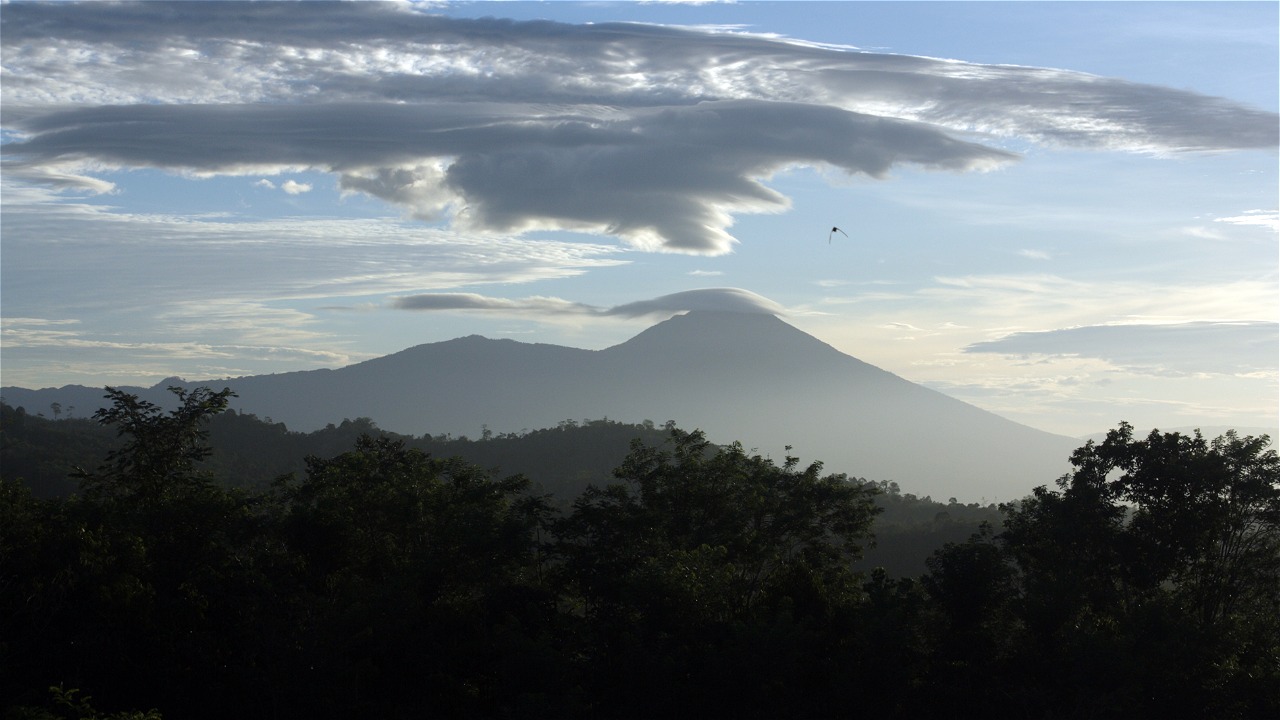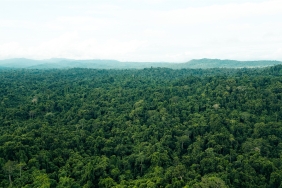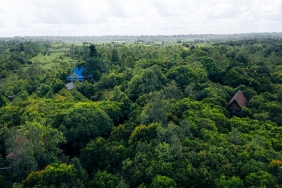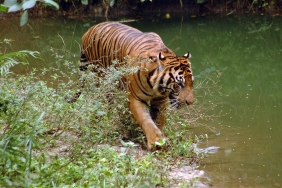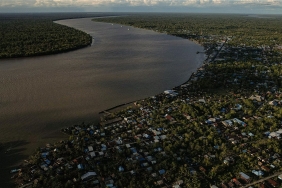PLAY AND LEARN TO LOVE THE ENVIRONMENT IN BUMI PANDA
By: Adrian Permana (Volunteer Bumi Panda) & Natalia T. Agnika
When "bear" meets "panda", something special happens. That's what happened when the Sun Bear Community collaborated with Bumi Panda. On Sunday (24/04), the Sun Bear Community invited 40 children from Assabiqunal Awwalun Orphanage to visit Bumi Panda. Komunitas Beruang Matahari is a community that cares for orphans. At Bumi Panda, the children from the orphanage were invited to play together while learning to love the environment.
The happy atmosphere was already felt at the beginning of the visit. The facilitators introduced themselves to create a sense of familiarity. Some ice-breaking games were played to relax the participants. Next, they learned about the environment in a fun way. The forty children were divided into groups and participated in activities in several posts, one of which was the Movie Post. This post is a post to show the condition of forests in Indonesia and endangered animals through the screening of a short documentary film. Through this film, children begin to understand the relationship between animals and humans and recognize conservation programs carried out by WWF-Indonesia.
The next post was the 3R Post (Reduce, Reuse, Recycle). In this post, the children got the knowledge to reduce waste, one of which is by processing unused items into useful items. On that occasion, they were taught to turn an old t-shirt into a reusable bag. In addition, they were also taught to make photo frames from used cardboard materials. The children looked very excited to do the recycling activity. Moreover, to make a bag from a used T-shirt, no needles and threads are required.
Another interesting post was the Water Test Post at the Panda Earth Water Laboratory. Wearing lab coats and scientist-style hats, they observed water samples. The children were very enthusiastic when they saw the microbes in the water samples. With the help of a microscope and a large screen, the microbes in the water samples could be clearly seen. These are things that they can only know when they visit Bumi Panda. In addition, the children were also given the opportunity to perform acid and base testing on water samples using litmus paper. The method is very easy and practical, just by dipping litmus paper into a water sample, children can find out whether the water has acidic, neutral, or basic properties. The volunteer at the Water Laboratory also gave a simple explanation.
Not only getting information about the environment through the stations, the children of Assabiqunal Awwalun Orphanage also went on a Panda Earth Tour. They traveled around Bumi Panda while receiving explanations from the Bumi Panda team. In the Species Room, the children saw various explanations about the objects of WWF-Indonesia's conservation work, about Sumatran tigers, sea turtles, orangutans, Javan rhinos, and Sumatran elephants. The large animal statues in Bumi Panda really attracted their attention. Furthermore, they got an explanation of the performance of WWF-Indonesia since 1962 until now.
Through play and learning activities, the information absorbed can be maximized. They are also not easily bored because there are questions about the environmental information they have received. After visiting Bumi Panda, the children are expected to love the environment more and bring changes to the environment around them.

